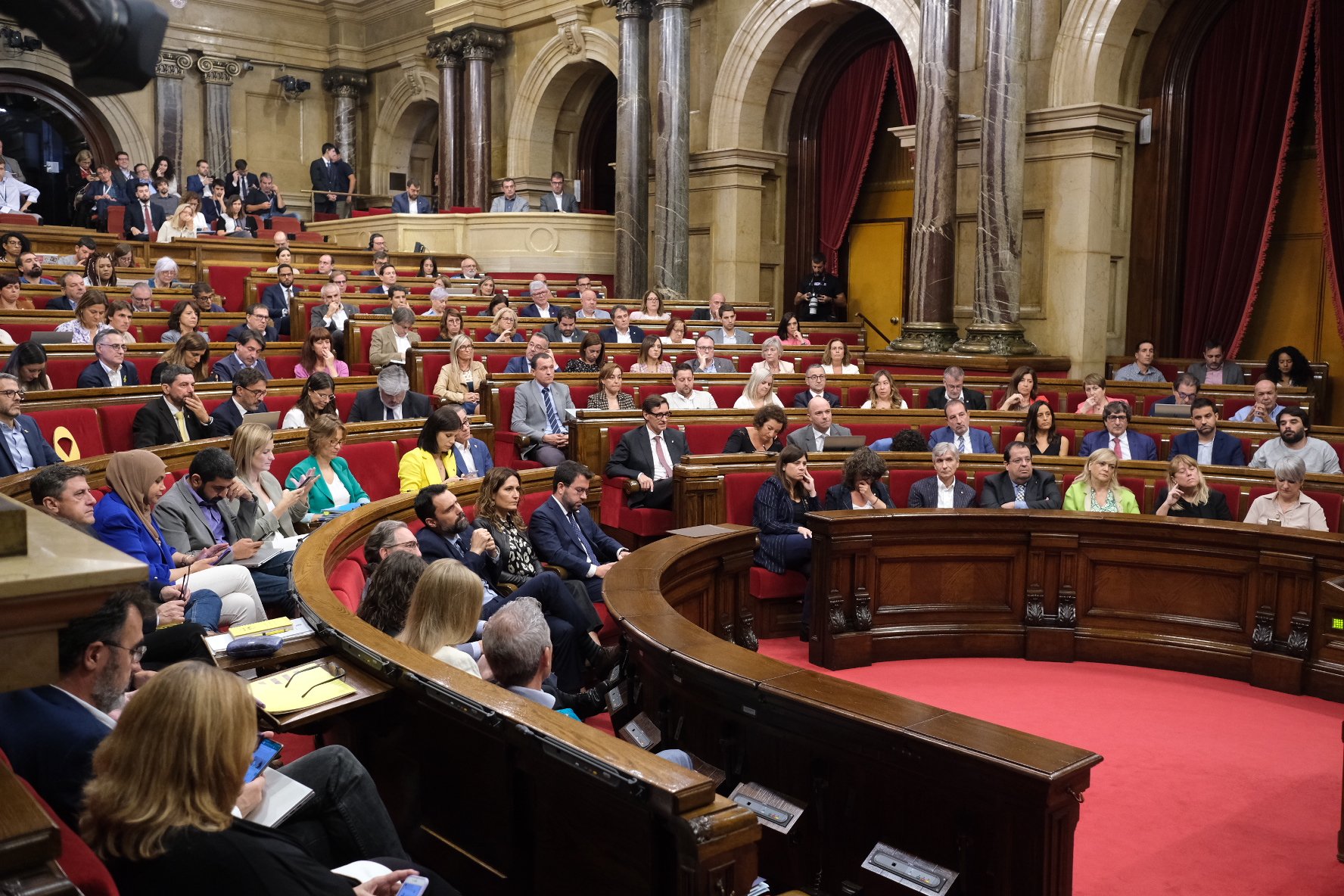An exception to the rule. Pro-independence coalition partners Catalan Republican Left (ERC) and Together for Catalonia (Junts) have managed to insulate the Catalan Parliament to some extent from the turmoil that is shaking their government. This Friday, at the culmination of the general policy debate in the Catalan chamber, unity was forged between the two parties to pass their respective resolutions relating to the right to self-determination and the political conflict with the Spanish state. The two parties voted in favour of both texts. The same fate eluded the proposed resolution by the third pro-independence party, the CUP, which directly called for the Catalan side to get up from the dialogue table with the Spanish government, and, before the end of the year, take a case to the European institutions and the United Nations to resolve the dispute with Spain.
The proposed ERC resolution "in defence of the Catalan Republic" was passed. This states that 80% of Catalans "want to democratically decide the political future of the country" and "manifests an unequivocal commitment to work for and achieve the Catalan Republic through democratic exercise". This same document states that the conflict "must be resolved through political and democratic means" and demands an end to the repression and political persecution of the independence movement through an amnesty law. It came out with the 62 votes of ERC and Junts in favour, and the CUP abstaining.
The same happened with the four resolutions on this issue registered by Junts. The first proposal passed defends the legitimacy of the result of the 1st October referendum, a vote that legitimizes unilateralism and disobedience and that this weekend celebrates its fifth anniversary. In this regard, it points out that "only a mandate arising from a self-determination referendum agreed with the Spanish state could replace that of the referendum of October 1st, 2017". The second urges the different Catalan ministries to "deploy specific plans in order to reduce dependence on the political and economic structures of the Spanish state". The third focuses on the denouncement at international level of the repression and persecution of the independence movement by the Spanish state. And the fourth seeks to highlight the state's "neglect" towards Catalonia, citing as examples the lack of funding, the drive to recentralize and the contempt for the laws and resolutions approved by the Parliament in Barcelona. In the case of the first two, there were 64 votes in favour due to the abstention of the CUP. The third and fourth came out with 73 votes in favour, those of the parliamentary pro-independence forces in their entirety.
The CUP fails to clear the table
On the other hand, the proposed CUP resolution did not succeed. In their text, the far-left party urged the government to "accept as finished and closed the current phase of the dialogue table", which they described as a "dead end", and instead to address the UN, the European Commission and the Council of Europe before the end of the year to "urgently demand a democratic resolution of the conflict", based on self-determination and amnesty. The CUP also demanded that the executive "act with sovereignty" to guarantee the social rights of the Catalan population, to stop cooperating in the stability of the Spanish institutions and end the "participation and collaboration of the Mossos d'Esquadra in political repression of the movements in defence of social, civil and political rights". It received 9 votes in favour (those of the CUP), 93 against (including ERC) and 31 abstentions, those of Junts.

